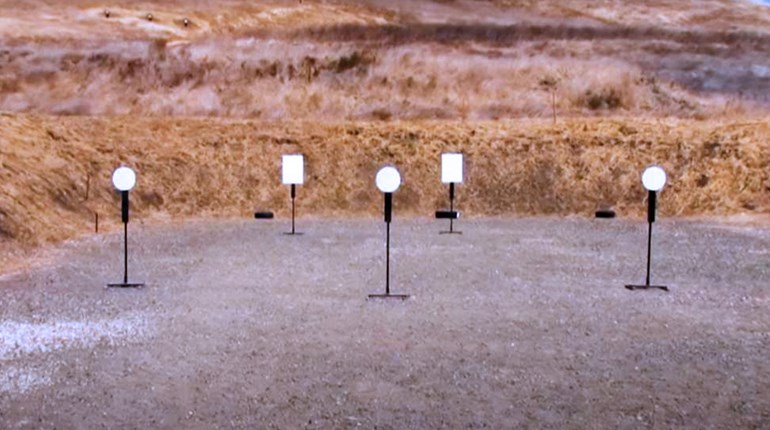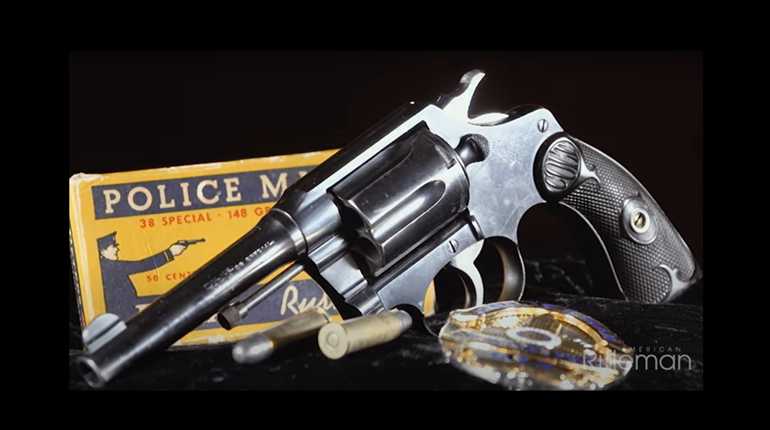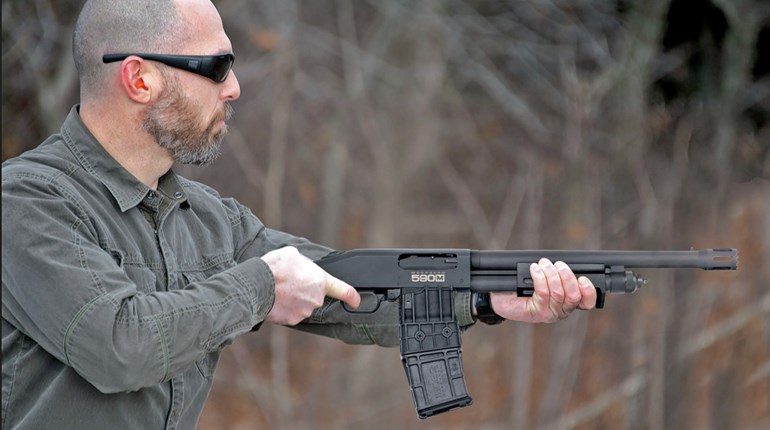
Firearms training shouldn’t end when you obtain your concealed carry permit, and next-level training with a competent firearms instructor is the fastest and most effective way to improve your shooting skills. Not all shooting instructors are created equal, however. So how do you know what qualifies a shooting instructor as competent? How do you know that you’re getting the best return for the time and money you’ve invested in a shooting coach?
I’ve been fortunate to attend shooting schools with excellent instructors like Gunsite’s Mario Marchman and Il Ling New (among others), and I always walk away from those classes having improved my skill set. Conversely, I’ve walked away from other classes without learning very much. Here are five key elements to look for in a shooting instructor.
1. They’re Safe
This is the most obvious and important factor when selecting a shooting instructor. Thankfully, most instructors are sticklers for safety—as they should be. But should you find yourself in a situation where the course places you or others in danger it’s time to walk away. Generally speaking, even bad instructors don’t intentionally put their students at risk, but rather do so through negligence or by placing students in situations they are not prepared to handle by emphasizing speed over technique.
Instructors who are distracted or who aren’t invested in what’s happening on the firing line create an unsafe situation, too. Most poor instruction requires nothing more than a poor end-of-course performance evaluation and a warning to friends that the instructor isn’t very good, but if you realize that the instructor has intentionally or unintentionally created a dangerous environment it’s time to bail immediately.
2. They Leave Their Ego at the Door
Some instructors use their courses as a means by which to bolster their own egos. They love to tell self-aggrandizing stories, discuss their shooting resume, and make students feel inferior. There’s nothing wrong with stories or sharing personal experience, but it should be relevant to the topic at hand and not some rambling soliloquy that has absolutely nothing to do with the course material (you are, after all, paying for this course and should be getting the most for your time and money). Some instructors also want to show off their shooting skills on the firing line, which robs paying customers of range time. When an instructor (or their website) pitches a course by explaining the practical skills taught in the class that’s a good sign. You want to know that your instructor is competent and qualified—you’re paying for this, right?—but you don’t want their curriculum vitae to be the sole reason for enrolling in the class.
3. They Meet Students Halfway
Some instructors can only teach brand-new shooters, and some can only teach students are experienced with firearms. The best instructors can teach anyone. Just like a good high school math teacher or hockey coach, a good firearms instructor assesses their student’s skill set and adjusts their instruction accordingly. In doing so, they help each individual student in their class achieve as much as possible. Very few shooting courses, advanced or otherwise, are comprised of students who are on the exact same skill level. The best instructors know how to help students lagging behind catch up without leaving more experienced shooters bored.
This may take some clever lesson design, but really good instructors help every shooter in the class achieve at the highest level possible. Bad instructors teach can only teach a specific curriculum, and don’t have the ability to meet the needs of students with varying skill sets.
4. They Favor Repetition and Fundamentals Over Flash
The best shooting courses will, at times, feel boring. Why’s that? Because your instructor is drilling you on the basics. They’re helping you add grasping the gun, drawing from the holster, presenting the firearm, and firing at the target to your muscle memory. They’re helping tune trigger control, sight picture, grip, stance and all the other factors that play a role in your development as a shooter.
Forgetting fundamentals results in sloppy form, and that will be deleterious down the line in your shooting career. Before you can run a field of plates in a hurry, you need to learn how to properly grip the gun and draw it from your holster. More importantly, should you ever find yourself in a deadly encounter, you’ll rely on those engrained fundamentals to help you defend yourself.
5. They’re Effective Communicators
It’s rare to find a good shooting instructor that’s a bad communicator. The very best instructors know how to get their point across succinctly in language that everyone understands. That doesn’t always mean the language is particularly pleasing to the ear—if you’re screwing up it’s your instructor’s job to tell you so—but good instructors can correct students effectively. What’s more, instructors who are good communicators are also organized and follow a course curriculum.
Your Job?
You play a major role in the success or failure of your shooting course, too, and it’s important that students understand their responsibilities if they want to get the most out of a class. If you expect the instructor to be a good communicator, then you need to listen to what they say. Take the time to refresh yourself on basic firearms handling even if you’ve practiced those skills before. Make safety the top priority, an even greater priority than getting your money’s worth from the course. And when your instructor leaves their ego at the door, please do the same. When you combine knowledgeable, competent instructors with committed students everyone wins.






































